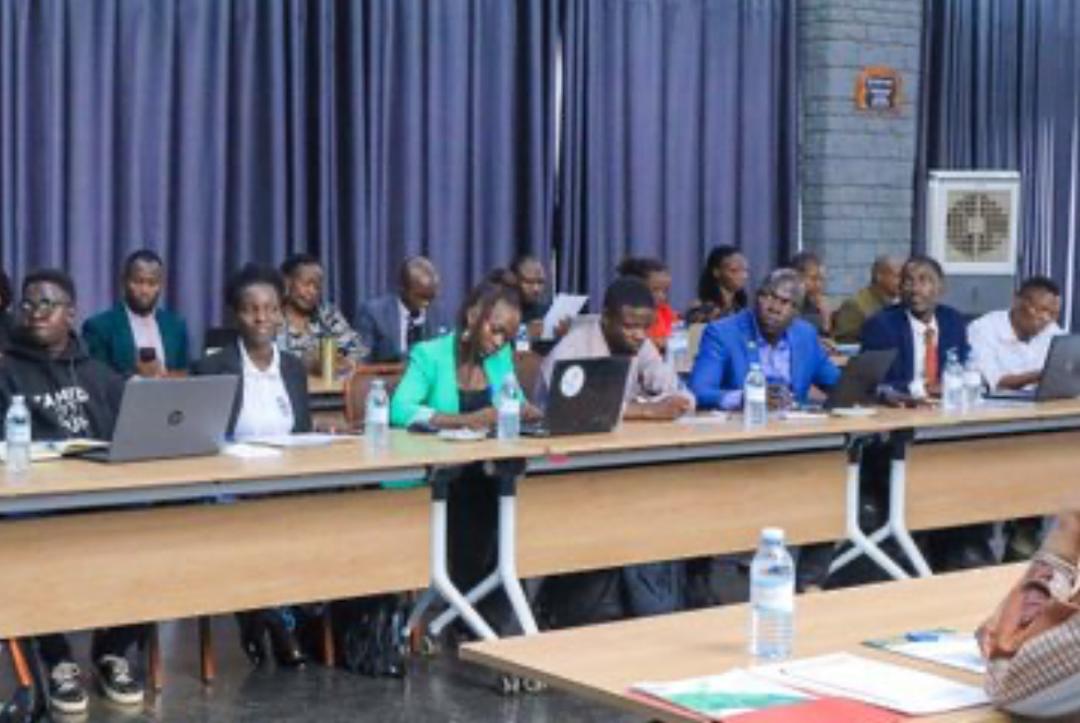The Julius Nyerere Leadership Centre (JNLC), in partnership with the United Nations Development Programme (UNDP) Uganda, has launched the Alumni Follow-Up Programme: Community Innovation Showcase and Alumni Workshop at Fairway Hotel, Kampala.
The two-day event, held under the theme “Empowering Alumni for Transformative Community Impact,” brought together alumni to share, refine, and scale community-driven initiatives.
In her opening remarks, the Executive Director of JNLC, Nansozi Muwanga, highlighted the importance of linking leadership training to tangible community outcomes.
“Today, we celebrate not only the spirit of youth leadership but also the growing community of innovators who are redefining what it means to lead with purpose, courage, and a commitment to community transformation,” she said.
Muwanga also unveiled the JNLC Alumni Impact Activation Strategy, aimed at bridging the gap between learning and action.
“Through systematic tracking, mentorship, and amplification of alumni-led initiatives—particularly those aligned with UNDP priorities like climate action, gendered economic empowerment, and digital innovation—we aim to build a strong pipeline of youth-driven solutions capable of creating sustained change,” she said.
Since 2021, JNLC and UNDP have trained over 600 youth leaders across Kampala, Mbale, Mbarara, and Arua.
“Many alumni face structural challenges, from limited visibility and resources to insufficient mentorship. Yet today, ten alumni have taken bold steps to design and implement initiatives addressing critical issues in their communities,” Muwanga said.
The workshop featured a keynote address by the Executive Director of PEDN Uganda, Irene Mutumba, who urged alumni to pursue intentional collaboration and leverage both financial and non-financial resources.
“You need to expand your networks. It has to be a strategic and intentional effort,” she said, highlighting her own journey in education and social entrepreneurship and emphasising that small, consistent actions can transform communities.
Several alumni presented innovative projects that combine environmental sustainability and social impact. Moro Boniface, a climate justice advocate from Gulu, discussed integrating tree planting with vegetable and fruit cultivation to create multiple income streams.
“Planting a single tree saves lives both human and those of other living organisms,” he said.
His initiatives in Lualakwa Village and Amuru Town Council have planted over 1,200 trees while promoting youth and community engagement in environmental protection.
Joan Itungo, an alumna from Kazo, showcased “The Initiative Against Enterprises,” which adds value to milk and hides.
“We aim to reduce gender-based violence, improve household incomes, and fight unemployment among women,” she said.
The project produces yoghurt, ghee, and leather crafts, supporting both women and men in local communities. She also highlighted challenges including limited access to electricity, manual production processes, and competition from larger dairy companies.
Other alumni presented initiatives spanning youth skilling, political and civic leadership, and urban farming. The event also included mentorship sessions and evaluations to identify top initiatives eligible for seed funding and further support.
“Leadership training should not end with a certificate. It must continue in your communities, in your daily actions, and in your long-term impact. Together, we are building a generation of leaders who do not simply dream of change but have already shown the capacity to turn those dreams into reality,” Muwanga said.
The alumni featured at the workshop included Obete Andrew Obonyo, focusing on Community Engagement in Gulu and Lira; Simoni Ichumar Peter, working in Community Engagement in Mbarara; Wetaka Jude, specializing in Climate Justice in Mbale; Moro Boniface, a Climate Justice advocate from Gulu; Itungo Joan, leading initiatives in Gender and Economic Empowerment in Kampala; Khaitsa Allen, working on Gender and Economic Empowerment in Mbale; Auma Oliva, focusing on Innovation and Urban Farming; Nadongo Mary, engaged in Innovation and Youth Skilling in Kampala; Charles Onek, specializing in Political and Civic Leadership in Gulu; and Emma Bwayo, working in Political and Civic Leadership in Mbale amongst others.
The programme represents a growing effort to empower youth-led solutions that combine leadership, innovation, and community impact across Uganda. At the conclusion of the workshop, five winning projects will be selected to receive funding support from the United Nations Development Programme, enabling alumni to scale their initiatives and create lasting community impact.


